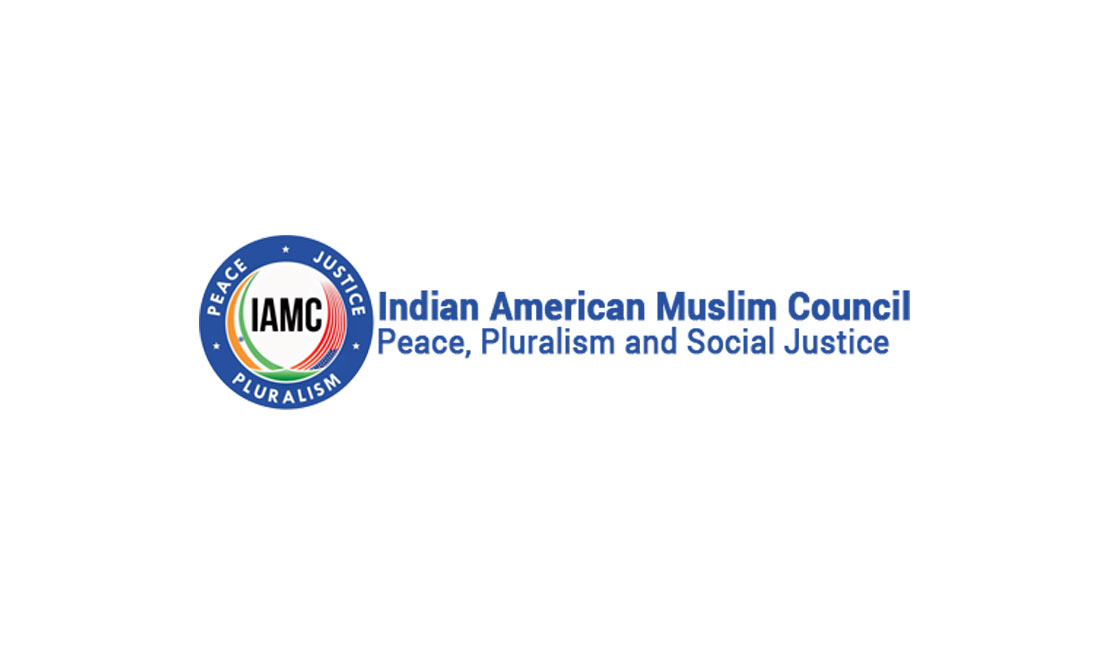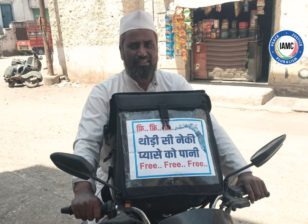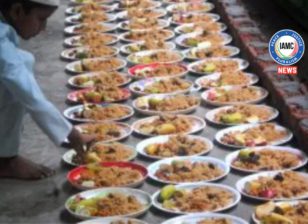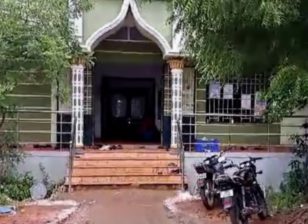Caravan of Love takes its peace message to Indian families touched by hate
As tide of caste or religious violence rises, one activist is taking his message of peace around India, meeting families of people killed in hate crimes.

Harsh Mander is making a ‘call to conscience’ for India’s Hindu majority. Photograph: Mint/Hindustan Times/Getty Images
A police escort is a must when travelling in the Karwan-e-Mohabbat, or “Caravan of Love”.
Its leader, Harsh Mander, can see the irony. The caravan – an air-conditioned coach emblazoned with a banner proclaiming a message of love – is traversing seven Indian states in two weeks with a “call to conscience” for India’s Hindu majority.
The police presence, sirens blazing, has become a government requirement for Mander’s stops – each one with the family of a victim killed in violence motivated by caste or religious difference.
“We have to understand times of hatred are spreading like a contagion, and remaining silent amounts to condoning or actually supporting that violence tacitly,” says Mander, a veteran activist.
The journey started on 4 September in Nagaon, in India’s north-eastern state of Assam. There they visited the families of two teenage cousins who had been lynched on the suspicion that they were cow thieves.

An Indian Bajranj Dal activist shouts slogans against Muslims in Ahmedabad in 2002, when religious riots swept Gujarat state, leaving more than 1,000 dead. Photograph: Sebastian D’Souza/AFP/Getty Images
It will come to the end of its main journey this week in Godhra, in the western state of Gujarat, where riots between Hindus and Muslims in 2002 killed more than 1,000 people and led to the state’s then-chief minister – now prime minister – Narendra Modi being barred entry to the United States and UK.
Hate crimes, especially on religious grounds, have become increasingly prominent since Modi’s Hindu nationalist government was elected in 2014. Statistics show some have increased in recent years.
More than 70 instances of violence in the name of cows, an animal revered by most Hindus, have been recorded in the past seven years – the vast majority since Modi was elected. Invariably, the victims are Muslims or low-caste Hindus.
Last week, against the advice of police – and threats from local Hindu extremist groups – the caravan visited the spot in Rajasthan where, in April, a 55-year-old dairy farmer was beaten to death by a mob of self-styled “cow protectors”.

Indian police remove protesters in Chennai demonstrating against Narendra Modi’s ban on the sale of cows for slaughter. Photograph: Arun Sankar/AFP/Getty Images
Mander has gathered a group of dedicated volunteers who helped to crowdfund the entire trip. They are an eclectic mix – lifelong activists, including a mother and son, along with photographers and seven young priests-in-training from a seminary in Delhi.
The caravan keeps a rigorous schedule, visiting two families each day: one in the morning and another in the evening. As they go from state to state, they pick up local activists who work in the areas the group visits.
“We want to create a network of peace communities in every district,” said Suroor Mander, one of the organisers.
On Tuesday morning, as the group of about 30 people packed their bags and boarded the bus, Mander announced that it was a volunteer’s birthday. Mander called for the “Brothers”, a nickname given to the priests, to sing happy birthday.
The mood turned serious when they arrived in the town of Vadavali in Patan district. In March, higher-caste men from nearby villages had clashed with the Muslim men of the town, burning down several houses, injuring many and killing one person.
It was less of a clash and more of an attack, said Salim Khan, a resident whose uncle was the sole fatality of the riots. “There were five of us and 5,000 of them.”
Police have filed charges against the two sides, according to Ahmedabad-based lawyer Shamshad Pathan, who represents the family of the man killed. One against 13 Muslim men in the village, and one against 34 members of the higher-caste members.
Pathan and other activists are calling the round of charges against the Muslim men a “cross case” – a pressure tactic by the police where they file charges against victims to prevent them from speaking out.
The local head of the village, a Muslim man, was sceptical of the caravan initiative: he says the violence was no hate crime, just a fight that got out of hand.
But Mander was heartened by the visit. He said the victim’s widow, Nasiaben, approached him privately after the group meeting. “Please guide us,” she said. “We want justice.”
Reference:




